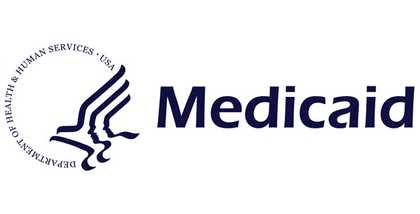So, can dental problems cause headaches or migraines? This article delves into how dental issues can cause headaches or migraines.









$149 New Patient Special!*
Includes comprehensive exam, full mouth x-rays and a cleaning for new patients without insurance.
It’s surprising how often dental issues are the hidden culprits behind headaches and migraines. Common dental problems such as tooth decay, gum disease, and jaw misalignment can trigger significant discomfort manifesting as head pain. Recognizing this connection is vital for effective treatment and prevention. Understanding how dental health impacts your overall well-being can provide insights into managing and alleviating discomfort. So, can dental problems cause headaches or migraines? This article delves into how dental issues can cause headaches or migraines, methods to identify these connections, and the preventive measures and treatments available to help you find relief.
Understanding Dental-Related Headaches and Migraines
Headaches can be debilitating, and dental issues might be at their root. Tension headaches, migraines, and sinus headaches can all stem from dental origins. Tension headaches, with their dull, aching sensation, can be triggered by teeth grinding or jaw clenching—common dental problems. Migraines, characterized by severe throbbing pain often on one side of the head, can be exacerbated by dental issues like tooth decay or gum disease. Sinus headaches may arise when dental infections spread to the sinuses, causing inflammation and pressure.
Symptoms like jaw pain, facial tenderness, and discomfort while chewing may suggest a dental connection. If you experience these alongside headaches, consulting a dental professional might be necessary. Dental problems can trigger headaches through misaligned teeth leading to bite issues, resulting in muscle tension radiating pain to the head. Additionally, dental infections can release toxins into the bloodstream, potentially causing systemic symptoms like headaches.
If persistent headaches occur, understanding whether dental problems cause headaches or migraines becomes essential. Evaluations can help identify the root cause, whether it is dental or not.
Common Dental Issues Linked to Headaches and Migraines
Dental health significantly impacts your overall well-being, including the prevalence of headaches or migraines. Tooth decay is a common issue that can radiate pain beyond the affected tooth. As decay progresses, it irritates the nerves in the tooth and jaw, altering pain perception and potentially triggering headaches, often mistaken for tension headaches.
Gum disease, characterized by inflammation and infection, can cause chronic pain and discomfort, increasing stress and tension. The inflammation releases substances that heighten pain sensitivity, making headaches more likely. Maintaining healthy gums is essential not just for oral health but also for preventing headache-related discomfort.
Temporomandibular joint (TMJ) disorders significantly contribute to headaches. These disorders affect the joints connecting your jaw to your skull, leading to pain, clicking sounds, and difficulty moving the jaw. TMJ disorders can strain surrounding muscles, resulting in tension-type headaches or migraines. Frequent headaches alongside jaw pain or discomfort warrant consulting a dental professional. Understanding if a toothache causes a headache or vice versa can be crucial in addressing the issue effectively.
Identifying the Connection Between Head Pain and Dental Health
Understanding referred pain is essential when exploring the connection between dental problems and headaches. Referred pain occurs when discomfort in one area is felt in another. Dental issues such as tooth decay, gum disease, or jaw disorders can radiate pain to the head, resulting in headaches or migraines. This often confuses individuals, as the pain source may not be immediately apparent.
To differentiate dental headaches from other types, pay attention to signs like tooth sensitivity, jaw pain, or gum swelling. Dental-related headaches often intensify when biting down or clenching the jaw. In contrast, tension headaches present as a constant dull ache, while migraines involve nausea and sensitivity to light or sound.
If headaches frequently occur alongside dental discomfort, seeking dental care might provide relief. Visiting a dentist helps identify underlying dental issues contributing to head pain. This can also address the question of whether a headache causes a toothache or a toothache causes a headache, offering a clearer path to treatment.
Preventive Measures and Treatments
Excellent oral hygiene is crucial in preventing dental issues that can lead to headaches. Regular brushing with fluoride toothpaste and flossing remove plaque and food particles that cause cavities and gum disease. Routine check-ups and cleanings allow early identification and resolution of potential problems, maintaining mouth health and reducing headache risk.
If dental-related headaches are already present, several treatments may alleviate discomfort. Over-the-counter pain relievers manage mild headaches, but consulting a dentist about the underlying cause is essential. Treatments like dental adjustments, orthodontic work, or mouthguards for teeth grinding can significantly reduce headache frequency and intensity.
Knowing when to consult a healthcare professional for persistent headaches is important. Recurring or worsening headaches require advice from a dentist or healthcare provider. They help determine if dental issues are the root cause or if further investigation is needed. Understanding whether dental problems cause headaches or migraines and whether a toothache causes a headache is vital for effective management.









